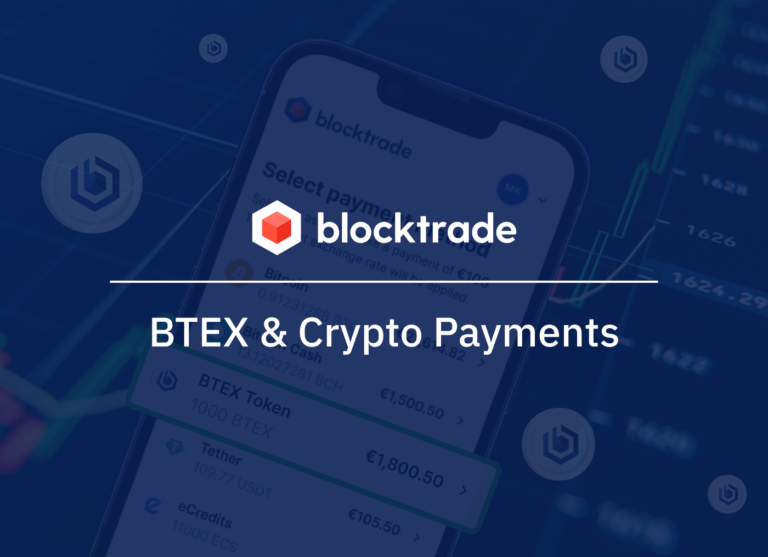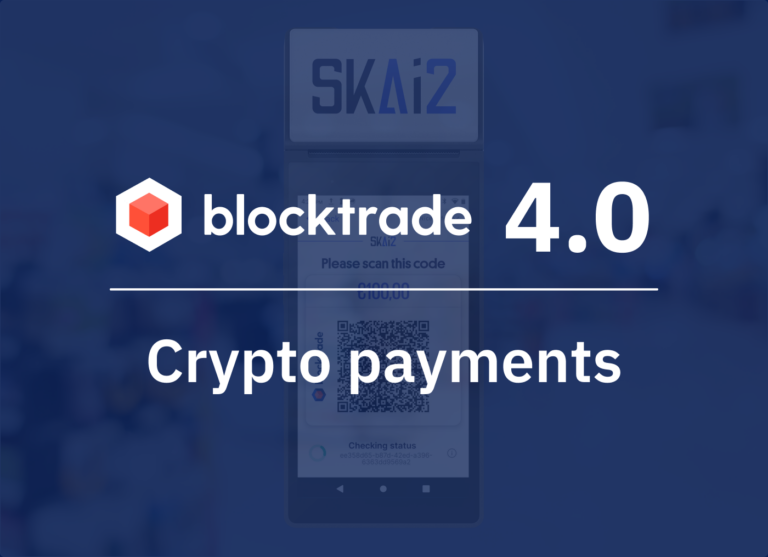First off, a high-level look. Historic hostility towards crypto in China is thawing. Beijing sees potential in blockchain tech, evidenced by their Web3 innovation fund. And savvy Hong Kong knows global finance moves fast – their crypto infrastructure rollout aims to avoid missing the boat. Add in some stimulus spending across China, and conditions seem ripe for local projects to prosper. Against that backdrop, these Chinese crypto coins stand out for their real-world utility, strong teams and robust technology. Let’s dive in!
1- NEO – The “Chinese Ethereum” Built for Business
If we had to place a bet on one Chinese crypto to watch, it would be NEO. There is huge potential here. Let’s break it down. Founded way back in 2014 by Da Hongfei and Erik Zhang, NEO set out to craft a “smart economy” via blockchain. The idea was to digitize real-world assets and automate their handling through smart contracts – just like Ethereum. That’s why folks call NEO the “Chinese Ethereum.”

But NEO packs extra appeal for businesses. Its delegated Byzantine fault tolerance (dBFT) consensus boosts speeds up to 1,000 transactions per second. dBFT is a technology that helps NEO process transactions quickly and securely. And it supports popular coding languages like Python and C#, opening doors for many devs.
Beyond the tech, NEO is highly compliant and adheres to the legal regulations. This is particularly important as many companies get anxious about legal matters. Its digital identity features help meet Chinese regulations, yet maintain user privacy. Plus, big homegrown brands are biting: from financial giant Agric Bank of China to carmaker BYD. Strategic wins if you ask me!
Last but not least, the NEO token makes the magic happen. It gives holders network ownership and voting rights. Yet it also generates GAS tokens to pay fees. So you get passive income! Not too shabby for an investment. And with real businesses adopting NEO already, prospects look bright.
2- VeChain – Keeping It Real with Supply Chains
Recently there has been much talk about a fascinating cryptocurrency called VeChain that could be a game changer for supply chain management. It was founded back in 2015 by this Chinese guy named Sunny Lu, who used to be an executive at Louis Vuitton in China. With his luxury goods background, Sunny saw firsthand how messy global supply chains can be behind the scenes.

The brilliant thing about VeChain is how it uses blockchain, sensors and AI to give companies an instant, bird’s eye view of where products are across every step of their supply chain journey. This way if there’s ever any hold ups or quality issues, companies can catch it right away instead of after tons of products have been made incorrectly.
This could seriously help avoid situations like when Lululemon had major issues with their black luon fabrics being see-through, back in 2013. It cost them millions! But with VeChain tech, problems are spotted practically in real time. Even cooler, it builds consumer trust that what they’re buying is 100% authentic all the way through the manufacturing process. No more knockoff bags being slipped into shipments!
VeChain’s already being tested out by Walmart and PwC in China for tracking goods like pork and wine from farm to fork. Supposedly the Chinese government itself is even using it for their national carbon trading platform! Not bad for a new crypto kid on the block.
Anyway, between the real world solutions, big name corporate partnerships and support from Chinese authorities, we have a feeling that VeChain crypto could still be making waves years down the road. Exciting stuff!
3- QTUM – The Best of Both Worlds
When cryptocurrency QTUM launched in China in 2016 under Patrick Dai’s guidance, few initially realized its disruptive hybrid potential. Unlike specialized blockchain platforms, QTUM fused the most useful capabilities of Bitcoin and Ethereum into one versatile development framework.

This interoperability manifests through a proof-of-stake infrastructure for speed without sacrificing security, the open architecture to deploy smart contracts like on Ethereum, and tooling aligned with mainstream coding languages. QTUM’s versatility empowers decentralized applications tailored specifically for burgeoning enterprise needs.
Community governance also distinguishes QTUM via participative decision-making mechanisms constituting the project roadmap and token economics. Users collectively pilot future direction through aligned economic incentives and collaborative discourse.
Domestic Chinese authorities even recognize QTUM’s prospects, while prominent regional partners continue harnessing versatile development capabilities for supply chain, logistics and digital identity use cases.
As blockchain permeates global business, purpose-built yet flexible cross-sector platforms possessing hybrid digital infrastructure may prevail. QTUM’s fusion of Bitcoin, Ethereum and collaborative community spirit fuels outsized potential.
4- Ontology – Blockchain for Business
If we’re talking about the best Chinese crypto projects with real-world business chops, Ontology deserves a look. Created in 2017 by OnChain founders Jun Li and Andy Ji, Ontology helps companies integrate blockchain tech across organizations. We’re talking next-level collaboration and efficiency.

See, Ontology offers customizable private and public blockchains for various business uses. These range from data exchanges to digital ID systems. The team packs in tons of handy dev tools too – think SDKs, smart contract support, and interface protocols. With just a bit of blockchain expertise, companies can build customized solutions tailored to their needs and integrate across value chains.
And Ontology keeps business realities in mind. The team prioritizes factors like compliance, corporate governance, and regulatory hurdles. No wonder their tech secures buy-in from Chinese banks, insurers, and governments. As blockchain transforms business in the coming years, purpose-built platforms like Ontology will likely lead the charge – especially across Asia’s colossal enterprise landscape.
5- NULS – Custom Blockchains Made Easy
Back in 2017, when entrepreneur Isaac Kim established the NULS blockchain project in China, not many grasped the sweeping implications of its modular architectural vision. Rather than rigid development frameworks, NULS empowers customized chain-building to align with diverse application needs.

This configurability stems from NULS’ library of reusable functional modules spanning consensus protocols, smart contracts, application programming interfaces and beyond. Developers blend compatible building blocks to efficiently construct specialized blockchains without intensive coding from scratch. Upgrades prove likewise streamlined through flexible module swapping.
Innovations further extend to NULS’ microkernel subsystem for optimizing throughput across parallel sub-chains. By splitting workloads across chains running discrete tasks, NULS unlocks vertical scalability and cross-chain interoperability for high-performance commercial applications.
NULS supplements adaptable infrastructure with incentives for users via staking mechanisms where participants help secure the network in exchange for native token rewards over time.
Between modular chain-building, microkernel optimizations and participative consensus, NULS furnishes customizable blockchain solutions poised to permeate supply chain monitoring, decentralized finance and predictive analytics across Chinese enterprises. The modular foundation sustains versatility.
6- Conflux – China’s Homegrown Blockchain Darling
Conflux’s origins began in the academic world, emerging from foundational research at prestigious Chinese universities rather than trendy white papers or speculation mania. The rigorous scientific investigation fruitfully coalesced in 2018, culminating in Conflux Network’s genesis. Yet backers understood Conflux was no derivative blockchain undertaking, but an earnest effort balancing an almost mythical blockchain “trifecta” of decentralization, security and scalability in harmony.

Restraining conventional wisdom, Conflux pursues this vision through a homegrown consensus model structuring interwoven yet independent hash chains operating in parallel. By compartmentalizing transaction verification across a decentralized network of chains, Conflux sidesteps concentrated bottlenecks plaguing first-wave blockchains. The ensuing throughput leaps generations ahead, future-proofing Conflux for erratic demands.
Solidifying technical foundations, Conflux’s interface supports intuitive smart contract and decentralized application development through conventional Solidity and languages like Python and Rust – abolishing adoption friction. Conflux further galvanizes decentralization, rewarding miners validating transactions swiftly with greater native token incentives.
China’s Change of Heart on Crypto

China’s crypto landscape keeps evolving. While the Middle Kingdom banned crypto trading in 2017, recent shifts suggest digital assets are worming their way into Beijing’s good graces once again. Could full acceptance be on the horizon?
Signs point to yes. China’s 2022 Web3 Innovation and Development white paper voiced support for blockchain technology. They backed this up too, pledging over $14 million annually towards Web3 research. This funding should turbocharge local talent.
Meanwhile, China’s digital yuan rollout shows they’re keen on virtual money – just not decentralized stuff they don’t control. However, allowing citizens to grow comfortable using e-cash could ultimately smooth mainstream crypto adoption down the line.
Then we have Hong Kong’s crypto-friendly makeover. With licenses opening up for virtual asset companies, HK hopes to become Asia’s premier crypto hub. Attracting big global exchanges like Binance drives home that ambition. If crypto flies high in free-wheeling HK despite Beijing’s watchful eye, tighter mainland restrictions may relax sooner than we think.
Supply and demand could also sway things. If Chinese investors and companies continue seeking crypto exposure, regulators may accommodate rather than risk capital flight. Plus, tech-savvy Chinese may access crypto through VPNs and offshore platforms anyway, limiting how much bans even help.
Between growing public and private sector use cases, and the porous nature of borderless currencies, China may need to embrace cryptos on its own terms to remain relevant. Their public stance stays anti-crypto…but key actions suggest seeds for change have planted across the Middle Kingdom.
Bottom Line
These Chinese crypto coins show some real innovation that could pay off long-term. A few like NEO, VeChain and Ontology are already putting blockchain to practical use helping businesses. This gives them a leg up since utility is what might attract more mainstream adoption. Others like QTUM, NULS and Conflux offer technological advances in areas like scalability, modularity and speeds that developers and companies will want. This could lead to new partnerships and use cases down the road.
Of course, regulatory risks remain a watchpoint with China. But some signs point to attitudes slowly changing. Overall, while volatility will come, those backing projects with real solutions, strong tech and aligned with China’s economic priorities may be well positioned for growth as the country’s digital economy continues expanding in the coming years.
FAQs
In a word: regulation. Expected changes towards crypto-friendly policies in China and Hong Kong signal major adoption could happen. Investors want exposure to blockchain innovators with established connections in the region.
We don’t provide direct investment advice. However, these projects merit further research for traders seeking assets with solid technological foundations and strong regional ties. As always, don’t overextend your position and implement good risk management.
NEO stands out for its compliance-friendly approach which should ease adoption even with strict regulatory frameworks. However, a balanced portfolio is wisest rather than betting on a single asset.
Certainly – China’s stance on crypto remains complex. But greater clarity from regional authorities suggests receptive conditions may persist. As with any policy environment, things can change quickly, so smart investors plan for agility.







